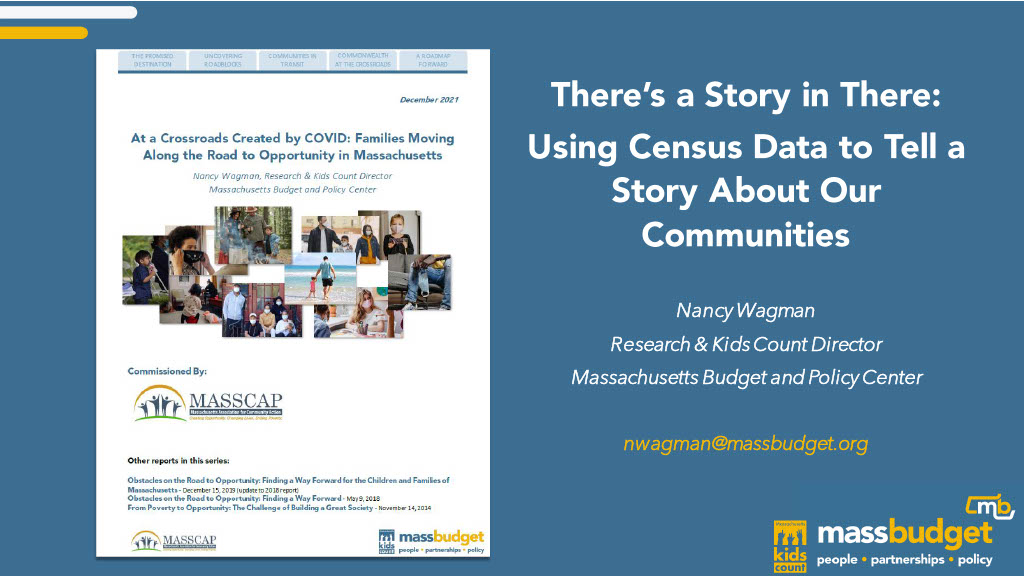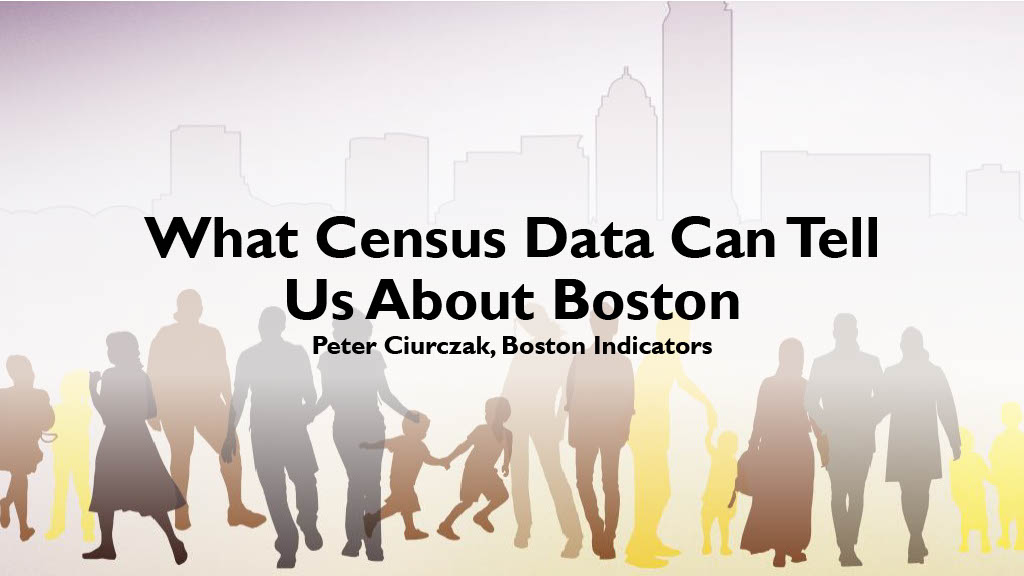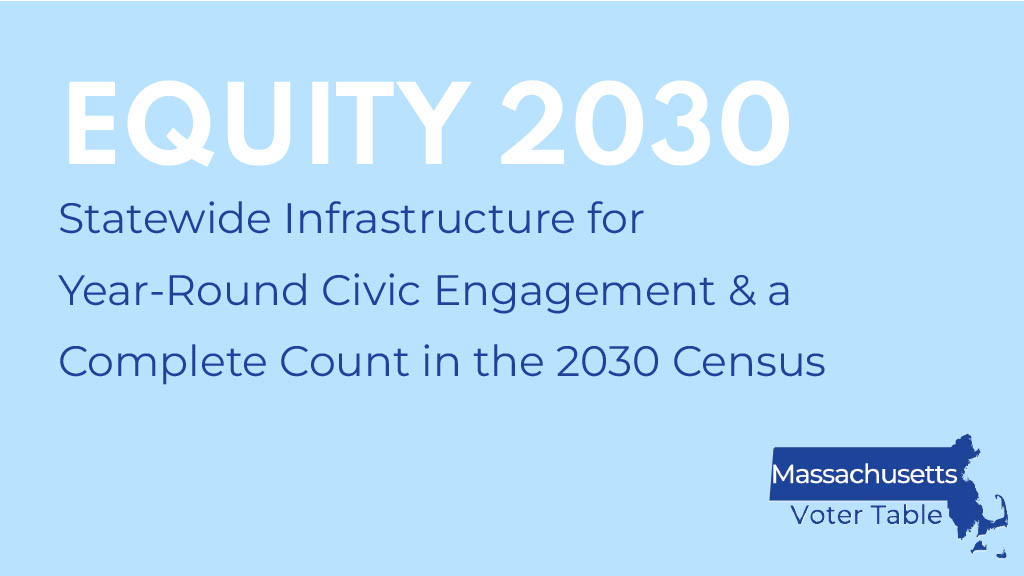Boston Census Briefing: How the Census Affects the City of Boston
November 16, 2022
On November 16, the Boston Foundation was pleased to host an online webinar focused on the importance and impact of the U.S. Census and its data in Greater Boston. Co-Sponsored by Boston Indicators, the Massachusetts Budget and Policy Center and Massachusetts Voter Table, the event featured three presentations on the history and importance of data to drive solutions to critical problems, and ongoing efforts to ensure that Census data now and heading toward Census 2030 reflects a complete count of residents.
After a welcome from TBF Assistant Director of Programs - Social Justice Ecology, Vetto Casado, MassBudget’s Nancy Wagman traced the history of racial and social inequity, using Census data to illustrate the connections between historical policies and disparities in resources today. The presentation served both to illustrate the ways in which groups have been marginalized in aspects of society, and to highlight the critical role that Census data plays in telling and understanding that story. “We can’t tell the story of our communities without the data we get from the Census Bureau,” she noted.
That data and how it is collected must continue to evolve, though, as Peter Ciurczak of Boston Indicators highlighted in his presentation. Ciurczak displayed data showing Boston’s overall population growing strongly between the 2010 and 2020 Census, but from there the answers get murkier – noting a combination of factors from the COVID pandemic upending life in “shared quarters” such as dorms, just days before the in-person 2020 Census count was to begin, and data categories that are challenged to effectively count or report the region’s (and nation’s) growing multiracial and multiethnic population.
After a welcome from TBF Assistant Director of Programs - Social Justice Ecology, Vetto Casado, MassBudget’s Nancy Wagman traced the history of racial and social inequity, using Census data to illustrate the connections between historical policies and disparities in resources today. The presentation served both to illustrate the ways in which groups have been marginalized in aspects of society, and to highlight the critical role that Census data plays in telling and understanding that story. “We can’t tell the story of our communities without the data we get from the Census Bureau,” she noted.
That data and how it is collected must continue to evolve, though, as Peter Ciurczak of Boston Indicators highlighted in his presentation. Ciurczak displayed data showing Boston’s overall population growing strongly between the 2010 and 2020 Census, but from there the answers get murkier – noting a combination of factors from the COVID pandemic upending life in “shared quarters” such as dorms, just days before the in-person 2020 Census count was to begin, and data categories that are challenged to effectively count or report the region’s (and nation’s) growing multiracial and multiethnic population.
Despite the challenges, the Census remains perhaps the most critical tool for understanding and empowering communities, as Beth Huang of Massachusetts Voter Table noted. Huang noted the correlation between participation, representation, and resources in communities, applying that participation lens both to voting and the Census.
Huang walked the audience through the challenges of census outreach efforts during the pandemic and some of the strategies they employed to improve response rates, and the end results from a political perspective, including district maps that better reflected area demographics, and a resulting increase in Black and Latino representation in state politics.
The conversation wrapped up with questions and answers about the future of the census, what could be changed and a call to action to start thinking about the 2030 Census early, build strong collaborations around Census-related issues, and highlight whenever and wherever Census data is informing critical data work – to protect a critical resource for nonprofits and the larger community.
Huang walked the audience through the challenges of census outreach efforts during the pandemic and some of the strategies they employed to improve response rates, and the end results from a political perspective, including district maps that better reflected area demographics, and a resulting increase in Black and Latino representation in state politics.
The conversation wrapped up with questions and answers about the future of the census, what could be changed and a call to action to start thinking about the 2030 Census early, build strong collaborations around Census-related issues, and highlight whenever and wherever Census data is informing critical data work – to protect a critical resource for nonprofits and the larger community.
Agenda
Using Census Data To Tell a Story About Our Communities/
Uso de los datos del censo para contar una historia sobre nuestras comunidades
Nancy Wagman, Research & Kids Count Director/directora de Investigación y recuento de niños, Massachusetts Budget and Policy Center/Centro de presupuesto y política de Massachusetts
What the Data Say About Boston/Lo que la información dice de Boston
Peter Ciurczak, Research Analyst/analista de Investigación, Boston Indicators/Indicadores de Boston
Taking Action for Data That Make a Difference/Actuar para que los datos marquen la diferencia
Beth Huang, Executive Director/directora ejecutiva, Massachusetts Voter Table/Mesa de votantes de Massachusetts



